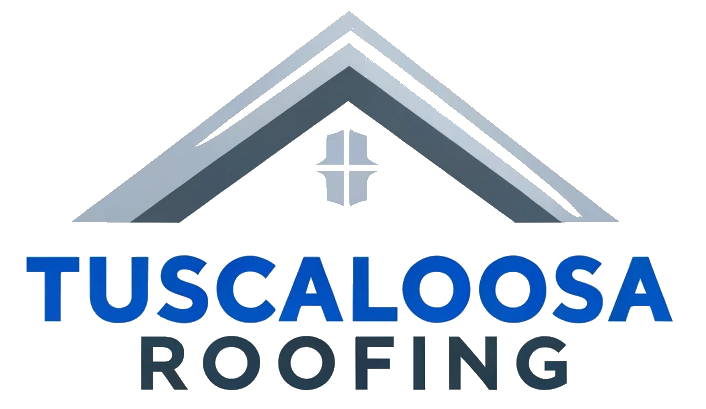Roof maintenance is a crucial aspect of homeownership that often goes overlooked until a problem arises. Regular maintenance can prevent costly repairs and extend the lifespan of your roof. Whether you have roof shingles, roof tiles, or a flat roof, understanding the importance of preventive measures can save you time and money. This post will delve into various aspects of roof maintenance, from identifying common signs of wear and tear to choosing the right roofing contractor. We’ll also explore the benefits of regular roof inspections, essential tools for maintenance, and cost-effective strategies to keep your roof in top condition.
What is Preventive Roofing Maintenance?
Preventive roofing maintenance involves regular inspections and minor repairs to keep your roof in optimal condition. This proactive approach helps identify potential issues before they become major problems.
Preventive maintenance includes cleaning gutters, checking for roof leaks, and inspecting roofing materials like asphalt shingles and metal roofing. It also involves ensuring proper roof ventilation and examining roof flashing and roof underlayment.
| Feature | Importance |
|---|---|
| Regular Inspections | Identifies potential issues early |
| Cleaning Gutters | Prevents water damage |
| Checking for Leaks | Avoids costly repairs |
| Inspecting Materials | Ensures longevity |
Preventive maintenance is essential for both residential roofing and commercial roofing. It helps maintain roofing standards and ensures compliance with roofing regulations. Regular maintenance can also enhance the aesthetic appeal of your home, contributing to its overall value.
Common Signs Your Roof Needs Maintenance
Identifying the signs that your roof needs maintenance can prevent extensive damage. One common sign is missing or damaged roof shingles. This can lead to roof leaks and water damage.
Another sign is the presence of roof moss or algae. This can deteriorate roofing materials and affect roof drainage. Cracked or curled shingles are also indicators that your roof needs attention.
Roofing felt and roof underlayment should be inspected for wear and tear. Damaged roof flashing can lead to leaks around chimneys and vents. Regular roof cleaning can help identify these issues early.
Roofing contractors recommend checking for sagging roof decking. This can indicate structural problems that require immediate attention. Inspecting roof eaves and roof fascia can also reveal signs of damage.
Benefits of Regular Roof Inspections
Regular roof inspections offer numerous benefits. They help identify minor issues before they become major problems. This can save you money on roof repair and roof replacement.
Inspections ensure that your roofing systems are functioning correctly. They help maintain roofing warranties by documenting the condition of your roof. This is crucial for both residential and commercial roofing.
Regular inspections can extend the lifespan of your roof. They help maintain the integrity of roofing materials like slate roofing and metal roofing. Inspections also ensure proper roof ventilation, which is essential for preventing moisture buildup.
Roofing companies offer professional inspection services. They provide detailed roofing quotes and roofing estimates. These services can help you budget for any necessary repairs or replacements.
How to Choose the Right Roofing Contractor
Choosing the right roofing contractor is crucial for effective roof maintenance. Look for contractors with roofing certification and roofing licenses. This ensures they meet industry standards.
Check for roofing reviews and roofing testimonials. These can provide insights into the contractor’s reliability and quality of work. Ask for roofing references to verify their experience.
Ensure the contractor offers a roofing warranty. This provides protection against future issues. Verify their expertise in various roofing techniques and roofing designs.
Consider the contractor’s experience with different roofing materials. Whether you need asphalt shingles, roof tiles, or metal roofing, the contractor should have relevant experience. Check if they offer comprehensive roofing services, including roof repair and roof replacement.
Essential Tools for Roof Maintenance
Having the right tools is essential for effective roof maintenance. A sturdy ladder is crucial for accessing the roof safely. Roofing nails and roofing adhesive are necessary for minor repairs.
A roofing hammer and roofing tar are useful for fixing damaged shingles. Roofing felt and roof underlayment are essential for maintaining the roof’s integrity. A roof inspection mirror can help identify hidden issues.
Roofing safety equipment, such as harnesses and helmets, is vital for preventing accidents. A roof cleaning brush can help remove debris and moss. Roofing calculators can assist in estimating roofing costs and materials.
Roofing contractors use specialized tools for more complex tasks. These include roofing equipment like nail guns and power washers. Having the right tools ensures that maintenance tasks are performed efficiently and safely.
Seasonal Roofing Maintenance Tips
Seasonal maintenance is crucial for keeping your roof in top condition. In the spring, inspect for damage caused by winter weather. Check for loose or missing shingles and clean gutters.
In the summer, ensure proper roof ventilation to prevent heat buildup. Inspect roofing materials for signs of wear and tear. Fall is the time to clear leaves and debris from the roof and gutters.
Winter maintenance involves checking for ice dams and ensuring proper insulation. Inspect roof eaves and roof fascia for damage. Regular maintenance during each season can extend the lifespan of your roof.
Roofing contractors recommend scheduling professional inspections at least twice a year. This ensures that any issues are identified and addressed promptly. Seasonal maintenance helps maintain roofing standards and ensures compliance with roofing regulations.
Cost-Effective Maintenance Strategies
Implementing cost-effective maintenance strategies can save you money in the long run. Regular roof inspections can identify minor issues before they become major problems. This reduces the need for costly repairs.
Cleaning gutters and removing debris can prevent water damage. Using high-quality roofing materials can extend the lifespan of your roof. Investing in proper roof ventilation can prevent moisture buildup and reduce energy costs.
Consider using roofing calculators to estimate roofing costs and materials. This can help you budget for maintenance tasks. Roofing companies often offer maintenance packages that include regular inspections and minor repairs.
DIY maintenance tasks can also be cost-effective. However, ensure you have the necessary roofing tools and safety equipment. For more complex tasks, hiring a professional roofing contractor is recommended.
How Weather Affects Roof Longevity
Weather conditions play a significant role in the longevity of your roof. Extreme temperatures can cause roofing materials to expand and contract. This can lead to cracks and other damage.
Heavy rainfall can cause roof leaks and water damage. Proper roof drainage is essential to prevent these issues. Snow and ice can lead to ice dams, which can damage roof eaves and roof fascia.
Strong winds can lift and damage roof shingles. Regular inspections can identify and address wind damage. UV rays from the sun can deteriorate roofing materials over time.
Seasonal maintenance can help mitigate weather-related damage. Ensure proper roof ventilation to prevent heat buildup. Use high-quality roofing materials to withstand various weather conditions.
Conclusion
Maintaining your roof is essential for protecting your home and ensuring its longevity. Regular inspections and preventive maintenance can identify potential issues before they become major problems. Whether you have roof shingles, roof tiles, or a flat roof, understanding the importance of maintenance can save you time and money.
Choosing the right roofing contractor is crucial for effective maintenance. Look for contractors with roofing certification and positive reviews. Ensure they offer a roofing warranty and have experience with various roofing materials.
Seasonal maintenance and cost-effective strategies can extend the lifespan of your roof. Weather conditions play a significant role in roof longevity, so regular inspections are essential. By following these tips, you can keep your roof in top condition and protect your investment.

